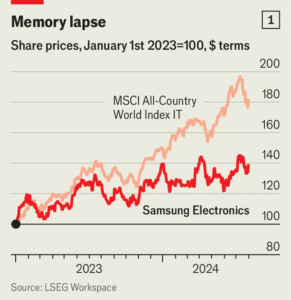
It is hard to imagine life without a smartphone these days. Leave yours at home and you may find yourself lost, moneyless and severed from social contact. Nine in ten American adults own one, according to Pew Research Centre. They spend 3 hours and 45 minutes on them a day, on average, reckons GWI, a firm of analysts. New versions souped up with artificial intelligence may be even harder to put down.
Yet a market is also emerging for phones that are deliberately pea-brained. These dumb phones—confusingly called “feature phones”—account for just 2% of phone sales in America. But demand is growing. In 2016 HMD, a Finnish firm, bought the rights to relaunch the devices of Nokia, whose basic phones once reigned supreme. It says it is now selling “tens of thousands” of flip-phones a month in America. In May it re-released the Nokia 3210, a mainstay of many millennials’ teenage years, in Europe. It even has Snake, a classic mobile game.
Dumb phones today do not merely replicate those of the past, though. Startups offer minimalist devices of their own. One example is the Light Phone, which is shaped like an iPod and has an e-ink screen like a Kindle. It also allows users to add optional “tools” including a podcast-player and a directions app.
What explains the return of the dumb phone? One factor is anxiety over the impact of smartphones—and social-media apps in particular—on young people’s mental health. That is why Eton, a posh British school, announced in July that it would bar its future prime ministers from bringing smartphones to school, and would provide them with Nokia phones instead.
But plenty of grownups are also choosing dumb phones of their own accord. Jose Briones, who moderates a forum dedicated to dumb phones on Reddit, a social-media site, switched to the Light Phone after growing alarmed at his soaring screen-time tally. Like many neophytes, he still keeps a smartphone for situations such as travelling abroad. Other smartphone addicts are instead opting to dumb down their devices, either by deleting apps or downloading ones that control screen time, of which there are a growing number.
Forswearing the supercharged connectivity of a smartphone can lead to jitters at first. Christina Dinur, another dumb-phone convert, remembers wondering what to do with herself when waiting in a queue without her smartphone. But, she says, she “settled into it really quickly”. For some, it seems, a dumb phone can be a smart choice.■
To stay on top of the biggest stories in business and technology, sign up to the Bottom Line, our weekly subscriber-only newsletter.
















